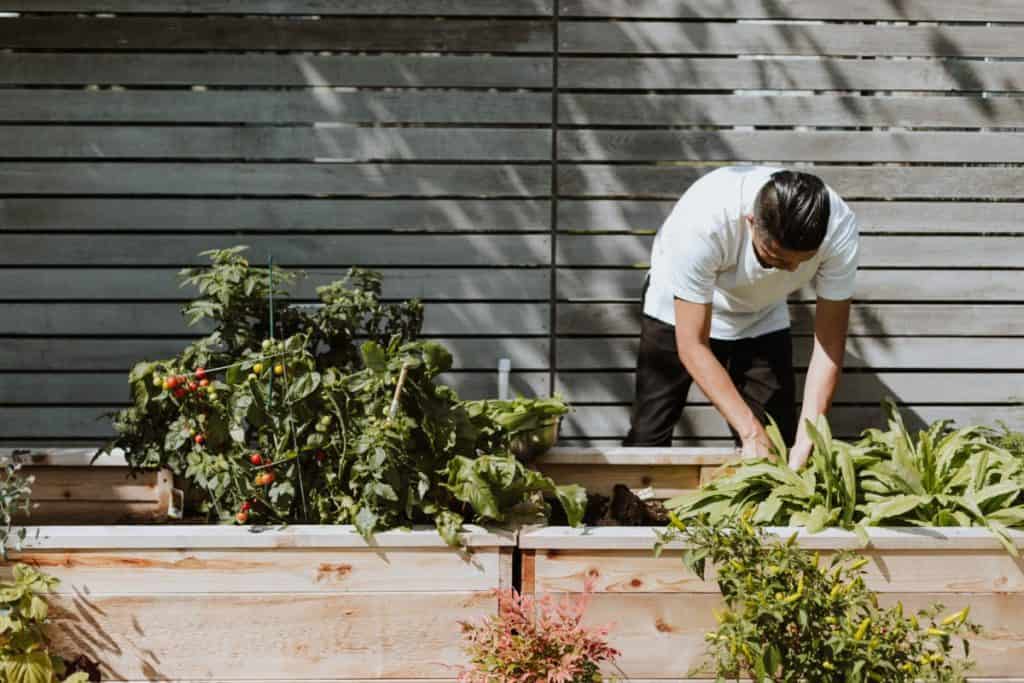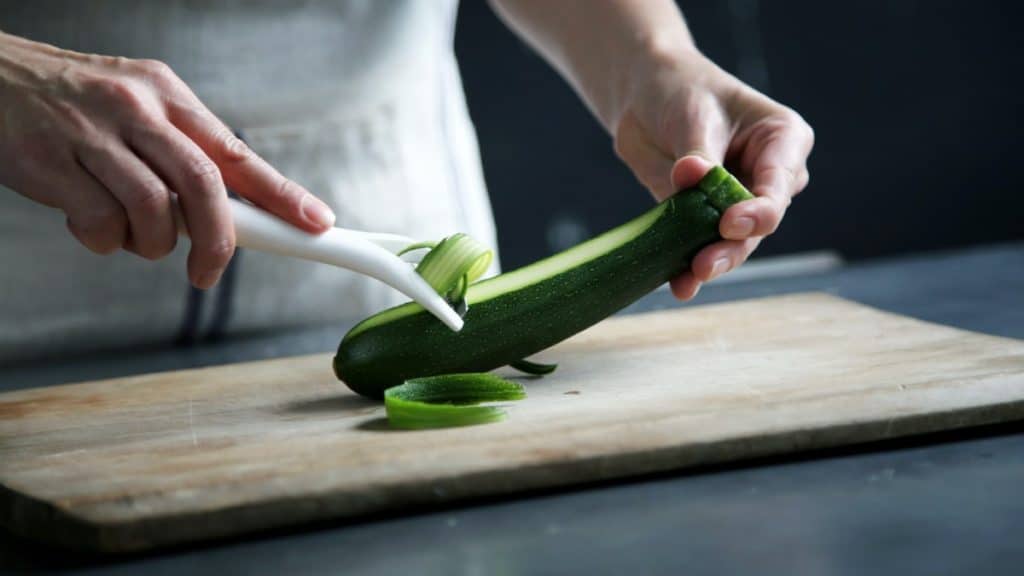
So, you’ve worked really hard and managed to secure your first chef job. That’s no small achievement and should give you a lot of confidence moving forward. Now your first day as a commis chef in the kitchen is coming ever closer and there is a mixture of excitement and nerves (don’t worry we’ve all been there!).
in the kitchen is coming ever closer and there is a mixture of excitement and nerves (don’t worry we’ve all been there!).
What may help to ease any nerves is an insight into what to expect on your first day in the kitchen. With that in mind I have put together this list of 19 tips to help you have an awesome first day as a chef.
On your first day as a chef, it’s important to arrive on time and be keen to get going. Ask lots of questions and if you are unsure of anything always check with the other chefs. Be polite and respectful to everyone and show you are passionate about learning.
If you can covey passion and a keenness to learn you will quickly be accepted into the brigade.
This is some general advice that will stand you in good stead and is applicable to many industries. Below we take a much more in depth look at chef jobs in particular and have some great insider tips learnt from many years in kitchens.
1. Be Prepared To Be Placed On The Veg Section
In smaller kitchens the sections may not be as clearly defined as they are in the larger ones. If it is a large kitchen a new chef is almost certain to be placed in the veg section to work. In a smaller kitchen they will be told the best place to set up their chopping board.
may not be as clearly defined as they are in the larger ones. If it is a large kitchen a new chef is almost certain to be placed in the veg section to work. In a smaller kitchen they will be told the best place to set up their chopping board.
Which ever size kitchen there’s a very high chance you will be asked to do veg prep on your first day. Ensure that you cut veg the way that has been asked and it’s important to make sure they are all to a similar size.
2. Check You Are Doing Things Right
For example, if you have been asked to baton carrots (cut carrots into strips) then after you have cut a couple, take a sample over to the chef who is guiding you to clarify you have done it correctly before carrying on.
(cut carrots into strips) then after you have cut a couple, take a sample over to the chef who is guiding you to clarify you have done it correctly before carrying on.
There is nothing worse than doing the whole box of carrots and discovering that you have misunderstood the instructions and done them all incorrectly!
3. Clean As You Go
This may be the most important tip in the entire list! Keeping a clean work area as you go along is vital for several reasons;
- It shows that you are organised
- It prevents the other chefs
 that are working alongside you from getting annoyed
that are working alongside you from getting annoyed
- It will allow you to work better as you can clearly see what you are doing and will have a clearer frame of mind.
Even if they are the same food group , once you have finished one particular task (such as chopping carrots mentioned earlier), then have a quick wipe down before moving onto your next task (cutting potatoes for example). It looks far more professional and mess is a huge bug bear for many chefs.
, once you have finished one particular task (such as chopping carrots mentioned earlier), then have a quick wipe down before moving onto your next task (cutting potatoes for example). It looks far more professional and mess is a huge bug bear for many chefs.
4. Be Punctual
An obvious one for many, but definitely worth pointing out here. Any new chef needs to be early to allow themselves time to get changed and set up their station. If you are given a 10am start time, take that to mean you should be at your station with a board set up by 10 o’clock.
needs to be early to allow themselves time to get changed and set up their station. If you are given a 10am start time, take that to mean you should be at your station with a board set up by 10 o’clock.
Strolling in the door at 10am would not make a great impression! Also be punctual with any break times. Some chefs may stroll in late but they have earned this right and are allowed to manage their own workload. New chefs shouldn’t try to emulate this!
5. Ask For Tasks To Do – Be Proactive
There’s always so much work that needs to be done, no chef will ever be stood around twiddling their thumbs. This is great and prevents any awkward hovering around. Be proactive and ask for tasks which need to be done.
I’ve seen some new chefs try to drag out jobs as they feel they need to make it last for the day. The opposite is true. If a new chef completes tasks quickly and to a high standard, they are likely to be sent to another section to help, where they can gain even more experience and progress faster.
6. Call Everyone Chef
The brigade system in kitchens relies on everyone being respectful to each other. When new, it is important to call the other chefs ‘chef’ unless told otherwise. This shows you are respecting their position and they will warm to you even quicker.
relies on everyone being respectful to each other. When new, it is important to call the other chefs ‘chef’ unless told otherwise. This shows you are respecting their position and they will warm to you even quicker.
The reality is that most chefs below Sous Chef level will ask to be called by their name. This is fine, and you will have earned brownie points for showing them the respect in the first place.
level will ask to be called by their name. This is fine, and you will have earned brownie points for showing them the respect in the first place.
7. Stay Out Of The Head Chef’s Way
The head chef is very busy and doesn’t tend to have a hands on approach with new chefs. This is true in larger kitchens but less so in smaller ones. Either way, it can be tempting to try and impress the head chef with questions or demonstrating your skill set.
is very busy and doesn’t tend to have a hands on approach with new chefs. This is true in larger kitchens but less so in smaller ones. Either way, it can be tempting to try and impress the head chef with questions or demonstrating your skill set.
Typically all this does is get in the head chefs way. They will ask for feedback from the other chefs about your performance so putting energy into impressing them is far more productive.
8. Familiarise Yourself With The Kitchen Lay Out
Even the most experienced chefs struggle when working in a new kitchen for the first time. Trying to find everything is one of the biggest challenges for any newcomer. When you have a spare 5 minutes take some time to orientate yourself with where everything is.
It would be impossible to remember everything in 5 minutes! Just a general understanding of the kitchen layout like where the pots and pans are kept and how the walk in fridge is setup, are a great foundation to begin with.

9. Make Friends With The Kitchen Porters
It can be tough being the complete newcomer to a kitchen. Everyone out ranks you, and there can be bad days when kitchen life gets a little tough. The K.Ps are not chefs and they can be great to go for a friendly chat and a bit of banter. They will appreciate a chef showing them respect and will give it back.
Although as a new chef you technically out rank a KP, if you upset them the Head Chef will take a very dim view of it. The K.Ps can also make life pretty awkward. Plus it’s just polite to be nice to others!
10. Don’t Chat Too Much
Having just said make friends with the KPs, it’s important not to try and be too chatty to the other chefs. Of course you want to be polite and friendly but don’t forget they are probably stressed and busy that day.
Make a good impression via the work that you do, not trying to talk your way into people’s good books. Chefs are notorious for having high BS detectors and judge others on results not just talking a good game.
11. Bring Your Own Knives If Possible
Whilst it’s not vital that you bring your own set of knives on the first day, it certainly will help. Having sharp knives that are familiar will make you feel more comfortable and prevent you from having to use the communal (usually blunt) kitchen knives.
that are familiar will make you feel more comfortable and prevent you from having to use the communal (usually blunt) kitchen knives.
Just one or two knives is a great start and they don’t have to be anything expensive. I’ve mentioned before that in my experience Victorinox  make some excellent value knives that won’t look out of place.
make some excellent value knives that won’t look out of place.
12. Do What Is Asked Of You
Peeling a whole bag of potatoes may not sound like your idea of fun, but in kitchens there are certain jobs that just need to be done. Even if it sounds like a bad job any requests should be done without hesitation.
If the task you’ve been given isn’t great, then do it to a high standard but as quickly as possible. Getting the task out of the way quickly will allow you to move on to do something a little more interesting afterwards.
13. Be Keen and Show Passion
This leads on from the point above. Always show keenness and passion to any task you are given. No one is expecting a new chef to have lots of knowledge or skills. However, everyone is expecting the new chef to be keen to learn and have passion for food and cooking.
It can be tough during the long days to stay keen all day long but try to keep your head up. Any form of negative attitude early on is a bad sign and is quickly removed from a kitchen.
to stay keen all day long but try to keep your head up. Any form of negative attitude early on is a bad sign and is quickly removed from a kitchen.
14. Stay Out Of The Way During Service
Service is the point in the day that gives chefs a buzz and is probably one of the main reasons why someone is drawn to a career in catering. The first service can be daunting as it seems like chaos! Pretty quickly a new chef will realise that there is a system in place and everyone isn’t just running around like headless chickens.
During your first few days you are not really going to be able to help during service so try to observe as much as you can and respond to any requests for help from with speed!
No one will mind you standing out of the way watching until you are given a task. It’s best at this stage not to get in the other chefs way even with good intentioned offers of help
15. Don’t Strut Around The Kitchen
This is the best way I could think of to word this, and hopefully readers understand what I mean by it. Some new chefs may feel the best way to act (in what can be quite a male dominated environment) is to strut around the kitchen to show you are not intimidated.
This is a very bad idea. It will not come across as confident, instead it will come across as arrogant without having a reason to be. Polite and respectful are the keys here and understanding a chef needs to earn the right to be respected through the work they do.
Kitchens can seem quite macho on the outside by they are actually very friendly places to be. Anyone strutting around just comes across as a little too try hard.
16. Precision Over Speed
When starting as a chef , you will be a lot slower than the others. This is fine and is expected, after all the other chefs have several years experience under their belt. The best way to make up for this lack of speed is precision.
, you will be a lot slower than the others. This is fine and is expected, after all the other chefs have several years experience under their belt. The best way to make up for this lack of speed is precision.
It’s better for a new chef to take twice as long completing a task correctly, than rushing and having to do it again.
17. Help With Cleaning At The End
A lack of experience may make helping out during service a little tricky. However, during the clean down is the perfect time to make up for it. Pitch in, cleaning everything thoroughly but as quickly as possible.
Everyone is keen to get home so will be working as fast as possible to get the kitchen tidy. This is not the time to stand around doing idle chit chat! In fact many chefs work faster during clean down than during the actual service!
18. Thank Others For Their Help
As in all walks of life, a simple thank you can go a long way. By thanking the chef you have worked with at the end of your shift you are acknowledging that they have taken their time to help you. This will make a chef far more likely to take the time to help you again in the future.
19. Kitchens Are Full Of Socially Awkward People
If you are a person that is quite shy or possibly a little socially awkward, reading these tips and seeing a working kitchen in full flow may add to your anxiety. This needn’t be the case! Having a new chef that is polite and respectful is far more favourable to a loud and boisterous one (after all they haven’t earned the right to be loud and boisterous yet)
The golden rule to remember is that many socially awkward people are attracted to kitchens as it is a great place to gain confidence and fit in. It’s always amazing watching shy new chefs grow in stature and confidence as they gain skills and become an important part of the team in a short space of time.
Chefs are very warm and welcoming by nature and kitchens attract interesting people from all walks of life.
To Sum UP
There we have the completed list of 19 tips for your first day as a chef. I’m sure most readers noticed that the words polite and respect came up time and time again. That is because it is by far the most important thing to remember!
By showing respect to others, they will in turn take the time to teach you more things making you a better chef and contributing to a great team atmosphere for everyone!
